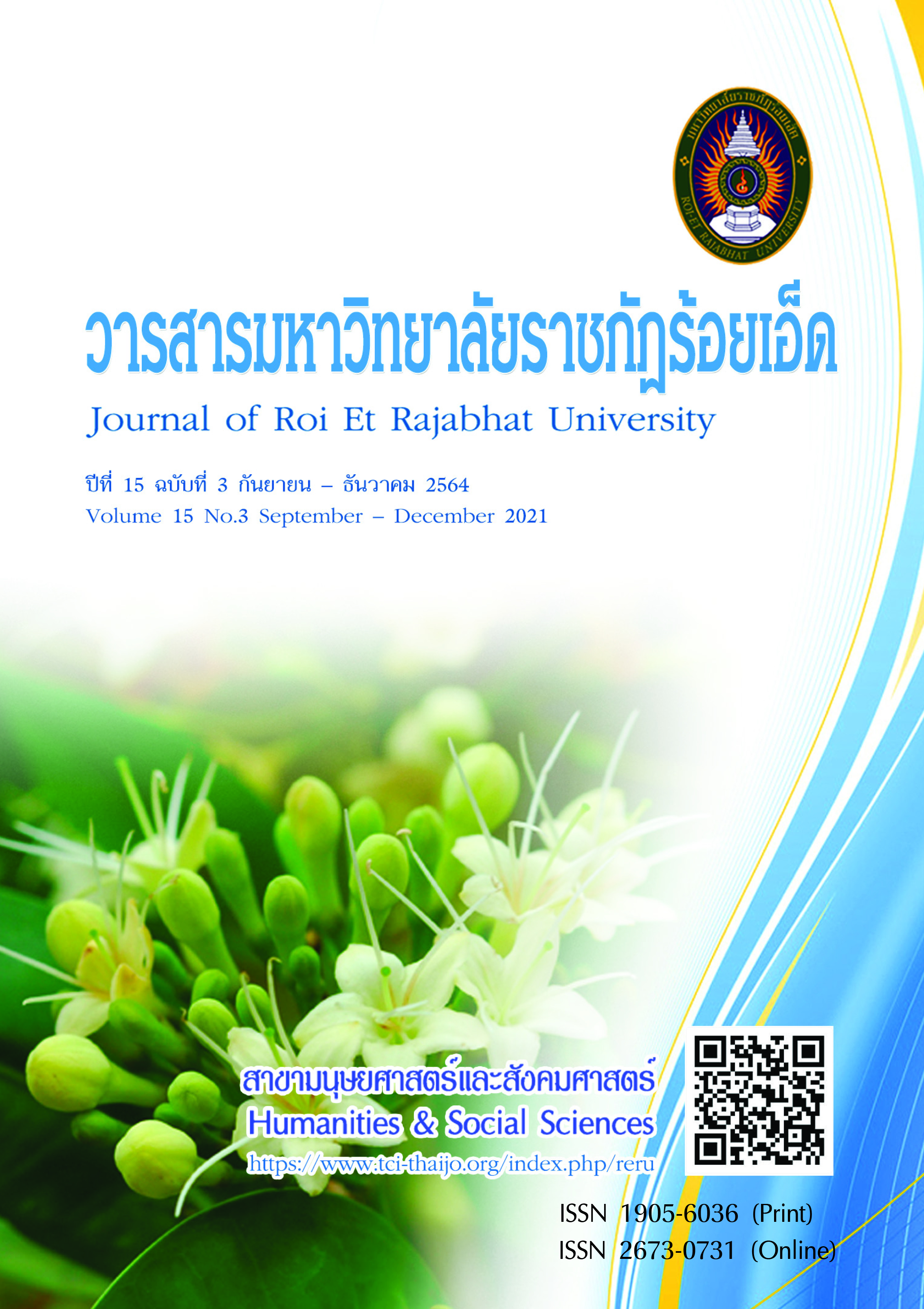The Effect of Mental Toughness Training upon Mental Toughness Level and Sport Success towards Muaythai Competition
Keywords:
Muaythai, Mental toughness, Sport successAbstract
The purposes of this research were 1) to study mental toughness level of Muaythai boxers, 2) to study sport success towards Muaythai competition, and 3) to study the relationship between mental toughness level and sport success towards Muaythai competition. The sample groups were 15 Muaythai boxers of Thailand National Sports University, Suphanburi Campus, selected from simple random sampling, and adapted from Cohen table with power of test at .80 and effect size at 0.6. The instrument in this research was the mental toughness test for professional Muaythai boxers with reliability of .91, and the empirical sport success towards Muaythai competition were win, draw, and loss. The statistics used for data analysis were mean, standard deviation, frequency, percentage, T-test, and correlation coefficient with Independent–Sample Kruskal-Wallis Test. Research finding indicated that 1) Level of mental toughness after week 8 training was higher than before training with the statistical significance at .05 level. 2) The competition results of Muaythai boxers found that 10 won and 5 lost. 3) The relationship between mental toughness level and sport success towards Muaythai competition was not related with the statistical significance at .05 level. It found that factors affected sport success toward Muaythai competition were 3.1) physical performance, 3.2) mental performance, 3.3) proficiency in using Muaythai skills, 3.4) Muaythai techniques, 3.5) IQ, 3.6) preparation before the competition, 3.7) experiences, 3.8) weight, 3.9) age, 3.10) award, and 3.11) cheering team.
References
ธีระศักดิ์ อาภาวัฒนาสกุล. (2552). หลักวิทยาศาสตร์ในการฝึกกีฬา. กรุงเทพ: จุฬาลงกรณ์มหาวิทยาลัย.
บุญส่ง โกสะ. (2542). ระเบียบวิธีวิจัยทางพลศึกษา. กรุงเทพฯ: สำนักส่งเสริมและฝึกอบรมมหาวิทยาลัยเกษตรศาสตร์.
ปรีชา กลิ่นรัตน์. (2560). การเป็นโค้ชกีฬามืออาชีพ. กรุงเทพฯ: ฟิวเจอร์เพรส แอนด์ กราฟฟิค.
ราชันย์ เฉลียวศิลป์. (2561). การสร้างโปรแกรมการฝึกความเข้มแข็งทางจิตใจสำหรับนักมวยไทยอาชีพ. ดุษฎีนิพนธ์ ศิลปศาสตรดุษฎีบัณฑิต สาขาวิชามวยไทยศึกษา. ราชบุรี: มหาวิทยาลัยราชภัฏหมู่บ้านจอมบึง.
สำราญ สุขแสวง. (2560). การสร้างโปรแกรมการสร้างเสริมสมรรถภาพทางกายสำหรับนักมวยไทยอาชีพ. ดุษฎีนิพนธ์ ศิลปศาสตรดุษฎีบัณฑิต สาขาวิชามวยไทยศึกษา. ราชบุรี: มหาวิทยาลัยราชภัฏหมู่บ้านจอมบึง.
สุปราณี ขวัญบุญจันทร์. (2545). จิตวิทยาการกีฬา. กรุงเทพฯ: ไทยวัฒนาพาณิช.
สุพัชริน เขมรัตน์. (2562). จิตวิทยาการกีฬาพื้นฐานแนวทางการนำไปใช้. กรุงเทพฯ: มหาวิทยาลัยธรรมศาสตร์.
Creswell, S.L. (2002). Key questions on mental toughness. Journal of Applied Sport Psychology, 18, 212-239.
Jones, G. and Connaughton, D. (2002). What is this thing called mental toughness? An investigation of elite sport performers. Journal of Applied Sport Psychology, 14, 205-218.
Loehr, J.E. (1986). Mental toughness training for sports: Achieving athletic excellence. Lexington Massachusetts:
Stephen Greene Press.
Downloads
Published
How to Cite
Issue
Section
License
บทความที่ได้รับการตีพิมพ์เป็นลิขสิทธิ์ของวารสารมหาวิทยาลัยราชภัฎร้อยเอ็ด
ข้อความที่ปรากฏในบทความแต่ละเรื่องในวารสารวิชาการเล่มนี้เป็นความคิดเห็นส่วนตัวของผู้เขียนแต่ละท่านไม่เกี่ยวข้องกับมหาวิทยาลัยราชภัฎร้อยเอ็ด และคณาจารย์ท่านอื่นๆในมหาวิทยาลัยฯ แต่อย่างใด ความรับผิดชอบองค์ประกอบทั้งหมดของบทความแต่ละเรื่องเป็นของผู้เขียนแต่ละท่าน หากมีความผิดพลาดใดๆ ผู้เขียนแต่ละท่านจะรับผิดชอบบทความของตนเองแต่ผู้เดียว





